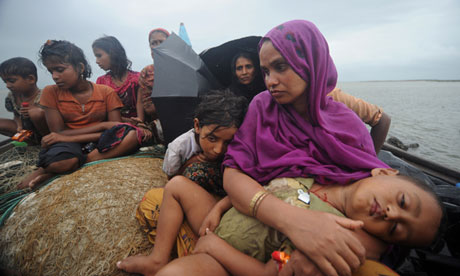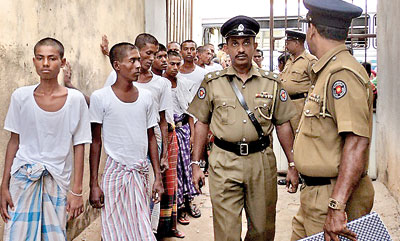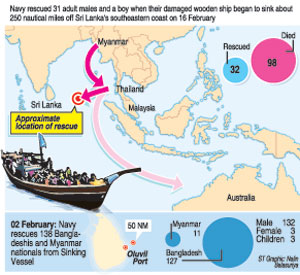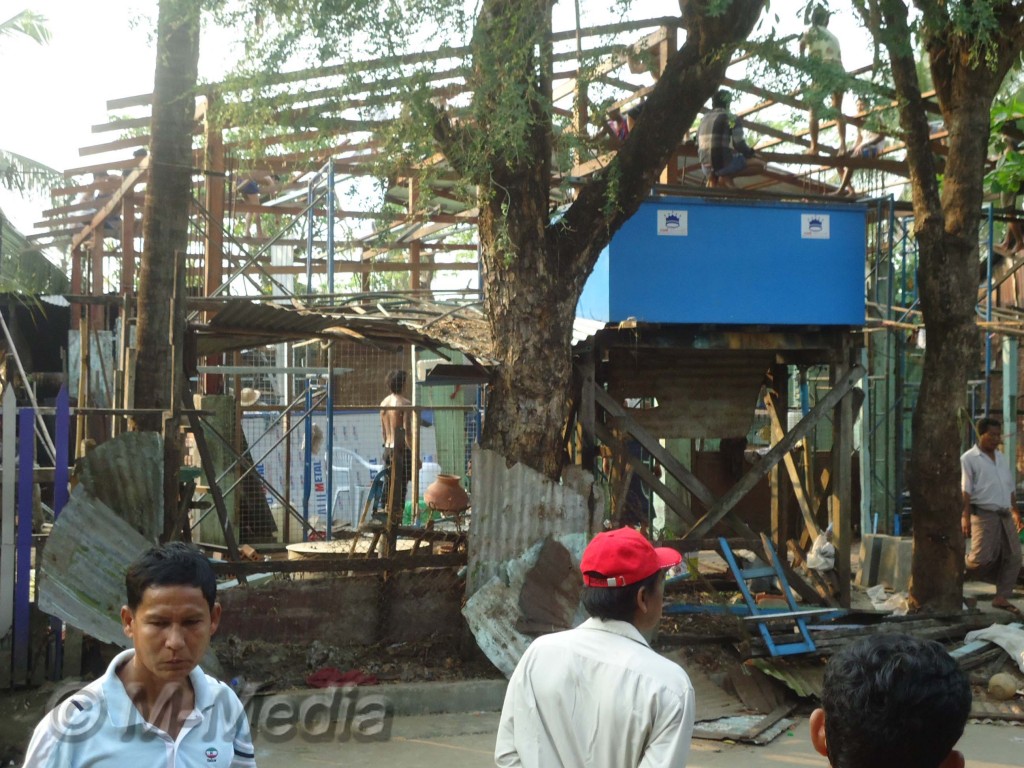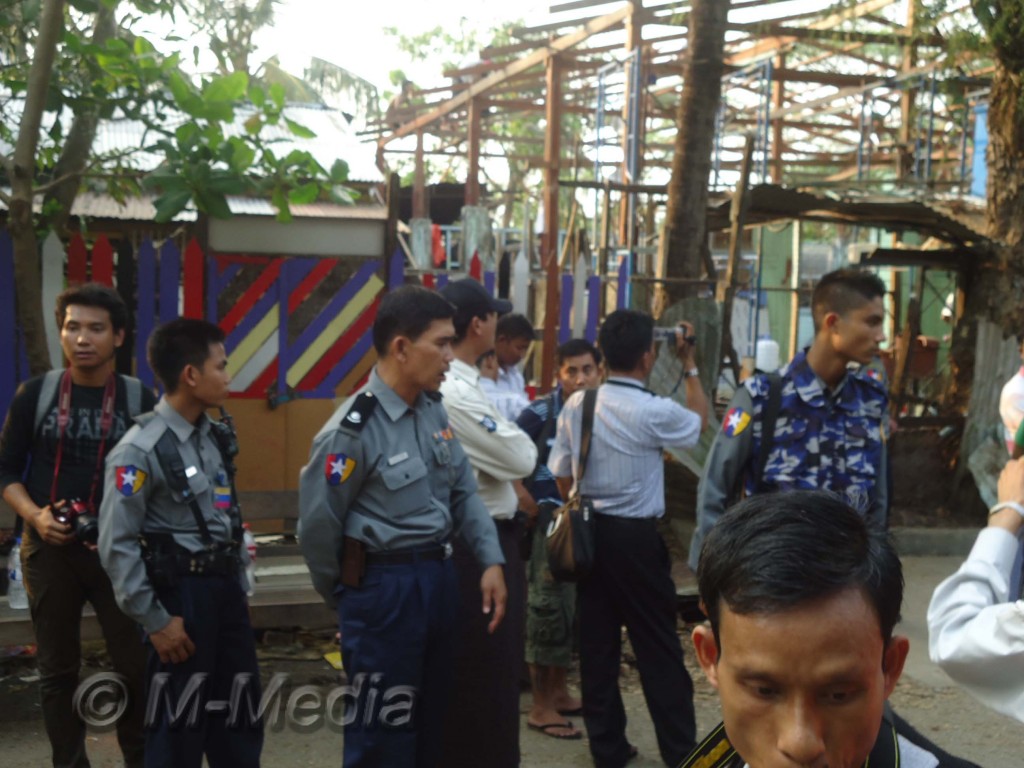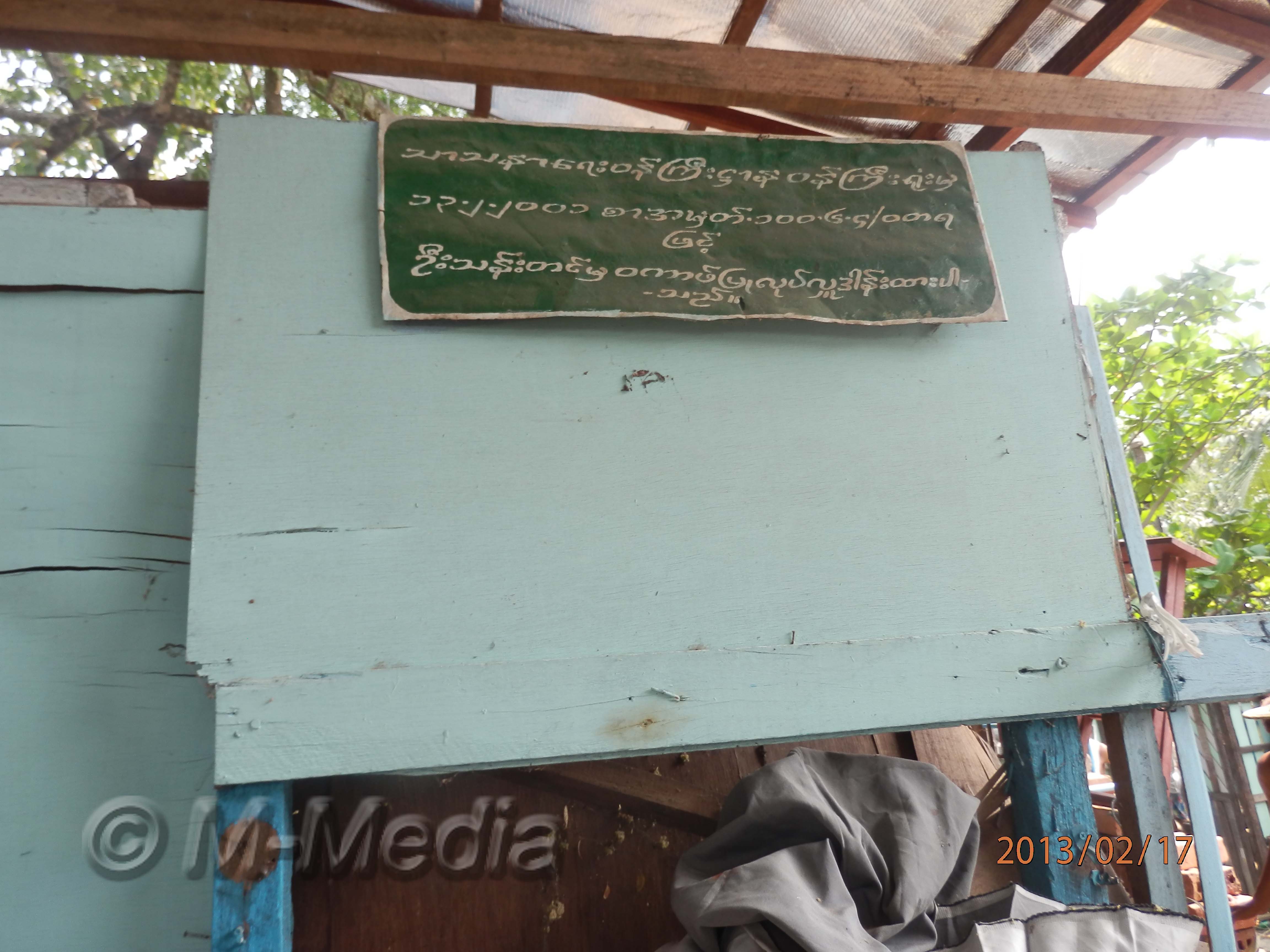By Tomás Ojea Quintana, 16 February 2013, Yangon International Airport, Myanmar
I have just concluded my five-day mission to Myanmar - my seventh visit to the country since I was appointed Special Rapporteur in March 2008. I would like to express my appreciation to the Government of Myanmar for its invitation, and for the cooperation and flexibility shown during my visit, in particular for my visits to Rakhine State and Kachin State.
In Naypyitaw, I met with the Home Affairs Minister, parliamentarians, the Chief Justice, Attorney General, Deputy Minister of Foreign Affairs, Deputy Minister for Border Affairs, and the Minister of Social Welfare, Relief and Resettlement.
In Yangon, I met with prisoners of conscience released since my last visit, members of the Interim Press Council, visited the offices of the Myanmar Times, met with members of the 88 Generation, protestors involved in the Moehti Moemi gold mine and Letpadaung copper mine protests, a
range of civil society organisations, the Myanmar National Human Rights Commission, and the Dean and students of Yangon University. I also met with Daw Aung San Suu Kyi and discussed a broad range of human rights issues. While in Yangon, I visited Insein Prison, met with five prisoners of conscience, and made a tour on conditions, speaking to inmates along the way, including prisoners in solitary confinement. And I met with members of the United Nations Country Team and briefed the diplomatic community. I would like to thank the Resident Coordinator and the Country Team for the support provided to me during my mission.
I also visited Rakhine State and Kachin State. In Rakhine State, I visited Muslim and Buddhist IDP camps in Sittwe, Myaybon and Pauk Taw, and also visited Sittwe Prison. In Kachin State, I visited IDP camps in Myitkyina and Waingmaw and also visited Myitkyina Prison. I would like to thank the Government for organising these visits and for the freedom of movement I was granted, which allowed me to assess the human rights situation on the ground.
In Kachin State, I am encouraged by the developments in the ceasefire dialogue, and hope it will
continue to progress over the coming weeks. I have been particularly concerned over the previous months of the escalation of military offensives, which has brought further death, injury and destruction to the civilian population. Furthermore, the ongoing large military presence, which remains beyond the reach of accountability mechanisms, means that serious human rights violations are continuing there. Based upon my visit to Myitkyina and interviews with persons in the IDP camps and detainees in Myitkyina prison, I am concerned about the ongoing practice of arbitrary arrest and torture during interrogation by the military of Kachin men accused of belonging to the Kachin Independence Army (KIA).
While I welcome the peace talks in China, the resolution of the conflict will need to address the role played by ethnic minorities in the reconstruction of the nation. I therefore highlight the importance of involving community based organisations, which are dealing with the consequences of the conflict, to participate in a transparent process of political dialogue and negotiation.
In the meantime, I urge both the military and non-state armed groups to comply with international human rights and humanitarian law, and to address the use of anti-personnel landmines. Over the years of conflict in Kachin State, the use of anti-personnel landmines has been widespread by both sides and they continue to cause death and injury to civilians as well as severe psychological trauma to the communities. In one of the camps, I met a teacher who had suffered serious injuries to his leg in a blast from a landmine. The Minister of Defence informed me during this mission that the Ministry of Social Welfare, Relief and Resettlement had established a mine risk
education programme. While I welcome this initiative, I urge the authorities to also begin the process of demining in the areas where the conflict has ceased, and to ratify the Anti-Personnel Landmine Convention.
I welcome the recent decision of the Government to allow a United Nations convoy to deliver humanitarian assistance to non-government controlled areas in Kachin State, but am concerned about the pace of implementation of this decision and will be monitoring this. Humanitarian access is still a challenge in Kachin State. While acknowledging the security issues for the humanitarian staff referred to by the Ministry of Defence during this mission, I believe that there are administrative and political obstacles that can be overcome to improve access. Furthermore, the harassment of local staff from humanitarian organisations and steadily decreasing donor funding are also having a detrimental effect on the provision of humanitarian assistance in Kachin State.
Yesterday and today
I visited three IDP camps in Kachin State. I was deeply moved to hear from families whose houses had been burnt down, their livelihoods destroyed, and who had had to leave loved ones behind, with thoughts about their future filled with apprehension and uncertainty. I also heard cases of forced recruitment by both Government and non-state armed forces. These people are living in shelters in IDP camps that are meant to be temporary, but they are becoming increasing permanent as the conflict goes unresolved. I believe that both the Government of Myanmar and the non-state group hold a heavy responsibility to reach a common understanding that will enable them to lay down their arms and build a lasting peace.
Rakhine State is going through a profound crisis that threatens to spread to other parts of the country and has the potential to undermine the entire reform process in Myanmar. Both Muslim and Buddhist Rakhine communities continue to suffer the consequences of violence that the Government has finally been able to control, though question marks remain over the extent to which excessive force has been used.
Around 120,000 people are internally displaced in camps, some of whom I met with during my visits to camps in Sittwe, Myaybon and Pauk Taw. I commend the efforts of the Myanmar government and the local authorities and their collaboration with the United Nations and humanitarian organisations to improve the conditions in these camps since my visit last August, including the provision of food, shelter and access to water and sanitation. My major concern lies with the lack of adequate health care in the larger Muslim camps. For instance, in Taung Paw camp in Myaybon Township, I met a woman in dire need of medical attention due to a severe case of gangrene in her foot. This kind of suffering in the camps is unacceptable and I urge the central and state authorities to ensure that adequate medical care is provided to all IDP camps. This is not just a matter of lack of resources, but requires the safe passage of humanitarian assistance to these camps. Currently, local and international medical staff are unable to provide medical care to some of the Muslim camps due to the threats and harassment they face from local Rakhine Buddhist communities. I urge the local authorities to send a clear message through their networks that this harassment of staff is not acceptable.
The Government also needs to address the issue of freedom of movement of people in these camps. Taung Paw camp in Myaybon Township felt more like a prison than a camp. People need to be given greater freedom of movement to engage in economic activity, such as trade and fishing, and to access education and obtain healthcare. This is also necessary to begin the process of rebuilding trust between communities through interaction, and to restore the dignity of the people who find themselves trapped in these camps through no fault of their own. Furthermore, the IDP camps cannot become permanent settlements for the communities, and if necessary the government needs to allocate land. The Government in Naypyitaw reassured me that the people will return to their villages. However, in Rakhine State, the information among stakeholders is that this won't take place and the current settlements will become permanent, which is particularly concerning with the coming rainy season in May which will flood many of these camps.
Feelings of fear, distrust, hatred and anger remain high between communities. To address this requires education, responsible local journalism, as well as mutually respectful dialogue between community leaders. For my visit, the local authorities organised a discussion between Muslim and Buddhist community leaders, which gave me hope that solutions can be found through mutually respectful dialogue in which both sides are willing to make compromises to find solutions. Local authorities are currently not doing enough in this regard, and must step up their efforts. Time does not heal wounds unless measures are taken to repair relations. To help inform this dialogue, the facts of what has happened need to be established and those responsible for human rights violations held to account, which I hope the Investigation Committee established by the President will help to do in its upcoming report which should be made public.
Mutually respectful dialogue cannot be had while discrimination based on grounds of ethnicity and religion remains unaddressed. I therefore reiterate my recommendation to Parliament that the 1982 Citizenship Act be amended to ensure that all persons in Myanmar have equal access to citizenship and are not discriminated in such access on grounds of ethnicity or religion. In the meantime, the current Act should be applied in a non-discriminatory manner to enable those with a just claim to citizenship, to claim it on an equal basis with others, including those from the Rohingya community.
While in Rakhine State, I also visited Sittwe Prison, and met with Dr. Tun Aung, and we discussed the role that he can play in rebuilding bridges between different communities if he is released. I regard Dr. Tun Aung as a prisoner of conscience who must be released immediately. This is also necessary to demonstrate that Myanmar has made a break from the past and no longer locks people up for political reasons. Furthermore, Dr. Tun Aung's case reveals that Muslims being tried and convicted in Rakhine state in relation to the recent violence are not receiving access to legal counsel, which is a violation of their basic human rights.
I am also dismayed that four INGO staff remain in detention in Rakhine State, having highlighted their cases in my last report to the General Assembly. I must reiterate that the charges against them are unfounded and that their due process rights have been denied and call for their immediate and unconditional release.
Despite the fact that the Government has released a large number of prisoners of conscience, there still remains a significant number.
In Insein prison I met with five prisoners of conscience: Aung Naing, Saw Francis, Tun Oo, Win Myint and Zaw Moe. They all should be released and I hope that the soon to be established committee, which I strongly welcomed when I met with the Home Affairs Minister, will include the participation of civil society to help ensure the speedy release of all remaining prisoners of conscience. The Home Affairs Minister appreciated the importance of this issue when I discussed with him the cases of the prisoners of conscience I met in Insein prison and Sittwe prison and the four INGO workers detained in Buttidaung prison.
I continue to be concerned about the practice of torture happening in places of detention in Myanmar. I met with the sister of Mr. Myo Myint Swe, who died following torture during interrogation while in police custody, and the wife of Mr. Phyo Wai Aung, who also allegedly suffered torture during police interrogation and passed away last January only five months after his release following my previous visit. Its ongoing practice highlights the gaps that exist between the reforms at the highest levels of government and the reality on the ground. However, I acknowledge that the Government and state authorities are taking steps to close this gap, and that a new Prison's Law is currently with Parliament. I am also encouraged that the Government has restarted work with the ICRC and hope that this will continue.
I am
particularly concerned by the situation in Buttidaung prison in northern Rakhine State, on which I have received serious allegations that Muslim prisoners have been tortured and beaten to death. I urged the Minister of Home Affairs to instruct authorities in Buttidaung Prison to immediately halt any practices of torture and ill-treatment that may be occurring which are contrary to international human rights law.
There has been important progress in developing a more open environment in Myanmar for people to express themselves, including a freer media environment. I met with members of the Interim Press Council, which is largely made up of independent journalists and which, to the Government's credit, has been given responsibility to draft a new media law. This will be an important piece of legislation to protect the freedom of expression of journalists, and I encourage the executive and legislative branches to ensure its speedy passage into law once the draft has been submitted later in the year.
Important gaps which remain include the lack of access to information for journalists, which will require some form of access to information Act to address, as well as the reform of the registration process for print publications, so that the threat of the revocation of licences cannot be used by state authorities as a tool for censorship.
Reform of broadcasting media is lagging behind, and there are currently no steps in place to ensure plurality of broadcast media, such as community radio. The same commendable bottom up approach that the Government is taking with the media law also needs to applied to the drafting of a broadcast law.
When I met with members of Parliament in Naypyitaw, I raised my concerns over their decision last January to approve an investigation of the online activities of a blogger who had criticised MPs' amendments to the Constitutional Tribunal Law. I emphasised that in a democracy, all forms of criticism need to be accepted, and particularly in the case of public institutions.
In my meeting with the Myanmar Times Chief Editor at the Myanmar Times' Offices, we discussed the new freedoms experienced by newspapers. And we also discussed the ownership issues of the Myanmar Times, and I was concerned to hear about the continued detention of his former business partner.
Progress in realising the right of people in Myanmar to assemble and demonstrate represents well the stage that Myanmar is at in its reform process. Important changes have taken place at the top, such as the passing of a Peaceful Demonstration and Gathering Law, but not to the point where international human rights standards are met. I discussed with parliamentarians, the Home Minister and the Attorney General article 18 of the law, which requires permission from local authorities to demonstrate and provides for up to one year in prison for a demonstration held without permission. I highlighted that only notification should be required and that imprisonment for peaceful assembly can never be justified.
Furthermore, there is a gap between reform at the top and implementation on the ground. Permits for assemblies are being granted and denied arbitrarily and on political grounds, and the behaviour of law enforcement personnel towards protestors is not always consistent with international human rights standards.
I met people who participated in the Letpadaung Taung protests, and they described how incendiary devices had been used to disperse protestors, resulting in serious injuries. In my conversation with the Home Affairs Minister, he denied that any incendiary devices had been used. I look forward to the results of the Investigation Committee chaired by Daw Aung San Suu Kyi to look into these events and to clarify whether excessive and disproportionate force was used. I also discussed with the Home Affairs Minister capacity development that can be provided to law enforcement officials to ensure that the United Nations Basic Principles on the Use of Force and Firearms by Law Enforcement Officials are complied with.
During my time in Yangon, I could already see changes from the flow of investment and opening of businesses here. There is a unique opportunity to channel this energy to pursue a form of development which enables the realisation of human rights in Myanmar. However, there is also the potential that development projects will have a detrimental effect on the human rights situation, through land confiscations, forced evictions, environmental degradation as well as reinforcing corrupt power structures and further concentrating wealth and resources in the hands of the few. Through transparency about where money is being spent, consultation with local communities, and investment by business in research which identifies the potential adverse human rights impact of their activities, these concerns can be addressed. There are also institutional reforms that the Government can introduce to guard against the potentially adverse impact of economic development. For instance, I do not believe that Myanmar currently has the mechanisms in place to deal with the flood of complaints about land confiscation and forced eviction that have started in relation to development projects.
During my meetings with the Attorney General, I was encouraged to hear about new legislation being passed that may have a positive impact on the human rights situation, as well as the efforts to develop the capacity of judges and lawyers in international human rights law. However, I didn't see any evidence that the judiciary is developing any independence from the executive branch of government, and urge the Government to work on this. In addition, there are some other laws that remain on the books which have been used against the people, such as the Unlawful Associations Act and the State Protection Act. I reiterate my call to the Government to repeal this kind of legislation.
In addition, the speed of the legislative reform over the past two years is important but at the same time careful attention needs to be paid to the drafting process, which should include adequate consultation with stakeholders such as civil society. Otherwise, problematic provisions, such as those I have just mentioned in the new Peaceful Demonstration and Gathering Law, will be repeated.
I met members of the Parliament, and I was encouraged by the continuing development of Parliament's role. I openly discussed with them, including a member (colonel) of the 25 per cent military presence, the tendency of military MPs to vote in accordance with instructions from higher military authorities. Though this is in accordance with the constitution of Myanmar, it demonstrates a gap in the democratic functioning of the Parliament.
The need for constitutional reform was discussed with a range of stakeholders during this mission. The current Constitution contains a number of provisions which could undermine the rule of law and fundamental human rights. During my discussions with government and non-governmental stakehoIders, I was encouraged that there was open discussion about the importance of the Constitution to reflect the needs and aspirations of the Myanmar people, and that it could be changed if the people desired it. Also, ethnic minority groups have stressed that constitutional reform is needed to reflect their demands for more control over their own affairs, and that it is crucial for the consolidation of ceasefire agreements and political agreements.
I also believe that the Constitutional Tribunal can play an important role in bringing the Constitution to be in compliance with international human rights standards through their mandate to interpret the Constitution.
To finish, in my meetings with different stakeholders, including members of Parliament, I insisted on the idea of addressing the important issue of truth, justice and accountability through the creation of a truth commission at the parliamentary level. What happened during the previous military governments remains untouched. I believe this is crucial for the process of national reconciliation and to prevent future human rights violations by learning from the past. The Government has a responsibility in this regard, but this idea will take time to take hold and will be up to the people of Myanmar to develop.
To conclude,
The reforms in Myanmar are continuing apace, which is a good sign for the improvement of the human rights situation in Myanmar. While this process of reform is continuing in the right direction, there are significant human rights shortcomings that remain unaddressed. I believe that as time passes it becomes more urgent to address these shortcomings before they become entrenched.
Also, gaps remain between the reforms at the top, and the reality and implementation on the ground, which I appreciate will take time to close. While recognising the significance of the reforms that have taken place, the international community should also focus on the implementation of reforms. The steps that the Government is taking in this regard should be continued and expanded, such as human rights capacity development for police, army, judges and lawyers.
I believe that the continuing existence of my mandate is relevant to help highlight the shortcomings and to help the government in implementing its reforms in line with international human rights standards. The mandate is also necessary to remind the international community of their important role in prioritising human rights when engaging in bilateral relations with Myanmar, including in business and investment relations.
I want to again thank the Government of Myanmar for its invitation and cooperation. I look forward to another visit to the country before my next report to the General Assembly in 2013. And I reaffirm my willingness to work constructively and cooperatively with Myanmar during this historic time to improve the human rights situation of its people.
ENDS


